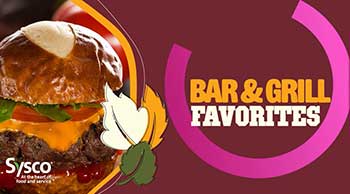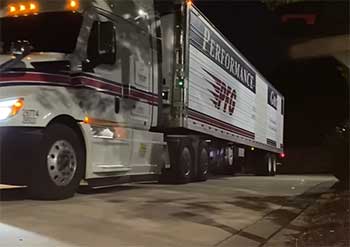The foodservice distribution industry is dominated by a few major players, with Sysco and Performance Food Group (PFG) being two of the largest companies. Both offer broadline distribution of fresh and frozen foods, as well as other products, to restaurants, hospitals, schools, hotels, and other foodservice operations across North America.
When choosing between these two distributors, operators must weigh factors like product selection, technology, customer service, and pricing. Here is an in-depth look at how PFG and Sysco stack up.
A Brief Comparison Table
| Aspects | Sysco | PFG |
| Company Size | Largest broadline distributor globally | 2nd largest broadline distributor in US |
| Headquarters | Houston, TX | Richmond, VA |
| Customers | 600,000+ including restaurants, hospitals, schools, hotels | 150,000+ focused on independent restaurants, regional chains |
| Locations | 333 distribution facilities | 70+ distribution centers |
| Revenue | $51 billion | $30 billion |
| Product Range | 400,000+ SKUs including specialty items | Core broadline inventory tailored regionally |
| Pricing | Leverages scale for competitive pricing | Provides budget-friendly options and discounts |
| Ordering | Suite of national digital ordering platforms | End-to-end ecommerce ordering solutions |
| Distribution Reach | Expansive national infrastructure | Flexible distribution capabilities regionally |
| Service Model | National sales force with broad resources | Local expertise and personalized customer service |
| Focus | Serves all customer types and sectors | Specialized in independent restaurants and regional chains |
Overview Of Sysco
Founded in 1969, Sysco has grown into the global leader in selling, marketing, and distributing food products to restaurants, healthcare facilities, lodging establishments, and other customers who prepare meals away from home.

Some key facts about this foodservice giant:
- Headquarters: Houston, TX
- Annual sales: $51 billion
- Customers served: 600,000+
- Locations: 333 distribution facilities
- Product categories: 400,000+ food and non-food items
Sysco aims to be a one-stop shop for all foodservice operational needs. They carry national brands as well as high-quality Sysco private label items. Product categories span staples like meat, dairy, and produce to disposables, equipment, and more.
A key strength of Sysco is their size and scale. They leverage their purchasing power to provide competitive pricing. Their extensive distribution network allows reliable deliveries across their entire customer base.
Some of the other key advantages of choosing Sysco include:
Broad product selection – As the largest broadline distributor, Sysco offers an exceptionally wide array of items including specialty foods. This makes it easy for customers to get everything through one vendor.
Technology solutions – Sysco offers a suite of technology tools to aid inventory, ordering, delivery, and other supply chain needs. These include online ordering platforms, inventory tracking, business intelligence, and more.
Highly trained sales staff – Sysco has a consultative sales approach with reps offering insights and expertise to help customers optimize menus and operations.
Value-added services – Beyond products, Sysco provides services like menu analysis, food safety training, Sustainability programs, and marketing services.
National brand recognition – The scale and reputation of Sysco allow them to attract top suppliers and offer brand name products customers recognize.
However, there are some downsides to Sysco that customers should be aware of:
- Their immense size can result in less personalized service compared to smaller distributors.
- Customers may not get much individual attention or have influence on the product selection.
- Distribution can be less flexible compared to regional distributors.
Overview Of Performance Food Group
The second largest broadline foodservice distributor in the US, Performance Food Group (PFG) was formed in 2008 through the merger of Performance Food Group and Vistar.

Key facts about PFG include:
- Headquarters: Richmond, VA
- Annual sales: $30 billion
- Customers served: 150,000+ independent and multi-unit restaurants, schools, retailers
- Locations: 70+ distribution centers
PFG takes a more localized approach than Sysco, tailoring products and services to each region served. They focus on providing personalized, flexible solutions to independent operators and multi-unit regional chains.
Some strengths of choosing PFG as a distribution partner are:
Local expertise and service – PFG divisions are operated regionally with associates having in-depth knowledge of local customers and markets. This allows for customized programs.
Focus on independents – PFG has a niche of expertise serving independent restaurants versus chains. Reps specialize in the needs of these customers.
Flexible distribution – With a network of locations across the US, PFG can adapt distribution plans for the scale and location specifics of individual operators.
Value-focused options – PFG provides access to lower-cost alternatives through private label items and discounted name brands. This helps independent restaurants on tight budgets.
Technology integration – PFG offers end-to-end ecommerce solutions for simplified ordering, inventory, invoicing, and other business functions through platforms like Trade walk.
Potential downsides of PFG to weigh include:
- Smaller purchasing scale than Sysco, which may impact pricing on some items.
- Less broadline selection than what Sysco offers, especially for specialty products.
- Lacks the national brand recognition and legacy that Sysco has built over decades in the industry.
Pros And Cons Of Sysco
Pros
- Massive product selection including hard-to-find items
- Advanced supply chain technology resources
- Cost savings through purchasing scale
- National brand recognition and legacy
- Highly trained sales experts
- Value-added services like marketing and sustainability
Cons
- Lacks personalization of smaller distributors
- Less flexibility in distribution and ordering
- Customers have less influence on business practices
- Complex to navigate massive infrastructure
Also watch this video!
Pros And Cons Of PFG
Pros
- Local expertise and tailored customer service
- Flexible distribution capabilities
- Focus on independents with consultative sales approach
- Affordable pricing through discounts and private label
- End-to-end ecommerce ordering solutions
Cons
- Smaller purchasing scale than largest competitors
- Less broadline depth, especially on specialty items
- Lacks brand recognition of national companies
- Regional gaps in distribution network
Also Read: Comparison Between Sygma And Sysco.
Frequently Asked Questions (FAQ)
Yes, Sysco is the largest foodservice distributor globally. They lead the market in North America with over $50 billion in annual sales distributed across restaurants, hospitals, schools, hotels, and more.
The other major broadline distributor competing with Sysco in scale and market share is Performance Food Group (PFG). While smaller than Sysco, PFG still generates over $30 billion in annual foodservice distribution sales across the US.
Yes, Performance Food Group and Performance Foodservice refer to the same broadline distribution company. PFG is simply an abbreviation of the full legal name Performance Food Group Company.
Some of the other leading broadline distributors in the foodservice space similar to Sysco include:
US Foods – 2nd largest distributor in the US after Sysco
Gordon Food Service – Major regional player in Midwest and Northeast US
Food Services of America – Top distributor in the Pacific Northwest
Reinhart Foodservice – Leading regional distributor in Midwest
Ben E Keith – Major Texas-based distributor expanding nationally
While not as large as Sysco, these companies provide comparable broadline distribution services regionally or nationally.
Also Read: Comparison Between Us Foods And Sysco.
The Bottom Line
When choosing between the two broadline giants, operators must weigh factors like:
- Product selection – Sysco offers a wider breadth of SKUs while PFG focuses on core inventory tailored regionally.
- Pricing – Sysco’s scale leads to competitive pricing but PFG offers budget-friendly alternatives.
- Distribution – Sysco brings expansive infrastructure while PFG emphasizes flexibility.
- Technology – Both provide robust digital ordering and data solutions fitted to their business model.
- Service – Sysco has broad national resources while PFG touts localized customer service.
- Specialization – PFG is tailored to independents while Sysco serves all customer types.
The right partner depends on your specific operational needs. Large chains may benefit from Sysco’s purchasing power, broadline selection, and national infrastructure. Independents may value PFG’s regional specialization, personalized service, and value-focused offerings.
When choosing between foodservice giants Sysco and PFG, weigh your business priorities in terms of product selection, pricing, distribution capabilities, technology integration, and customer service approaches. Sysco brings the power of their size, scale, and resources.
PFG touts localization, personalization, and independent specialization. With a clear understanding of their differences, operators can determine the best distribution partner for their needs.
